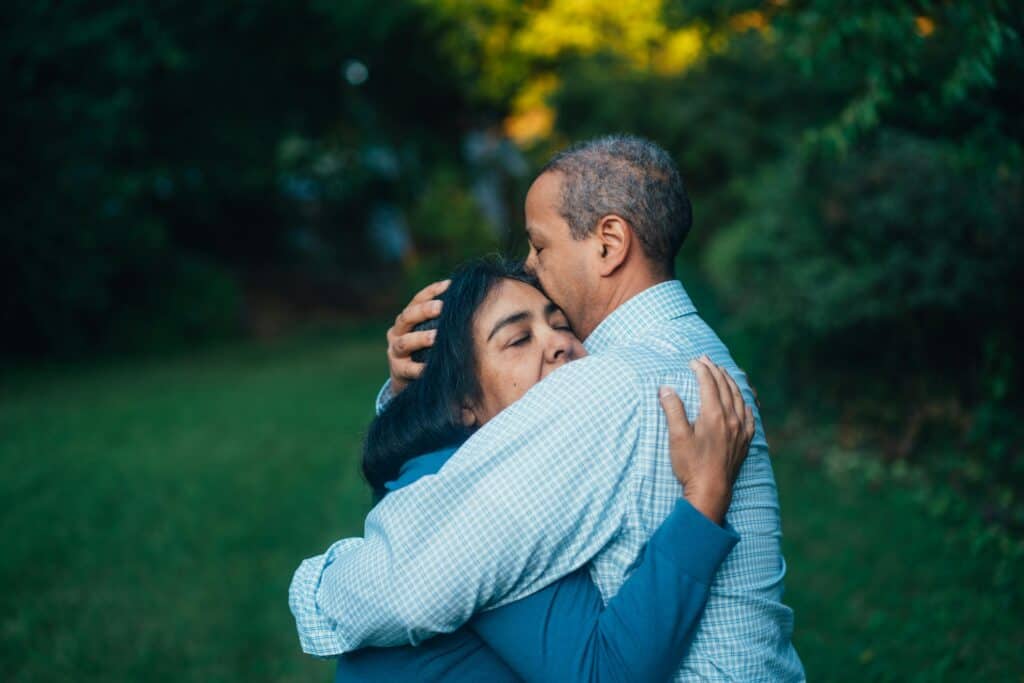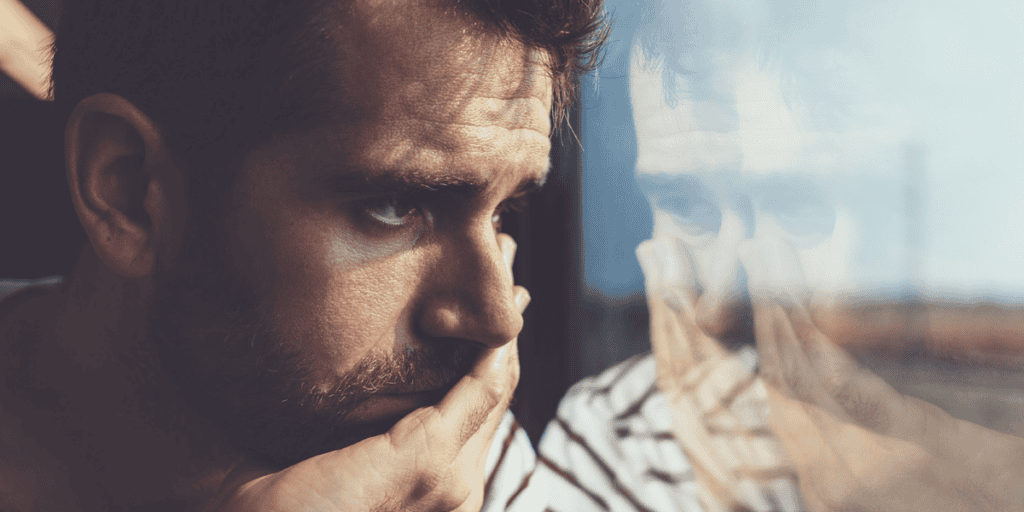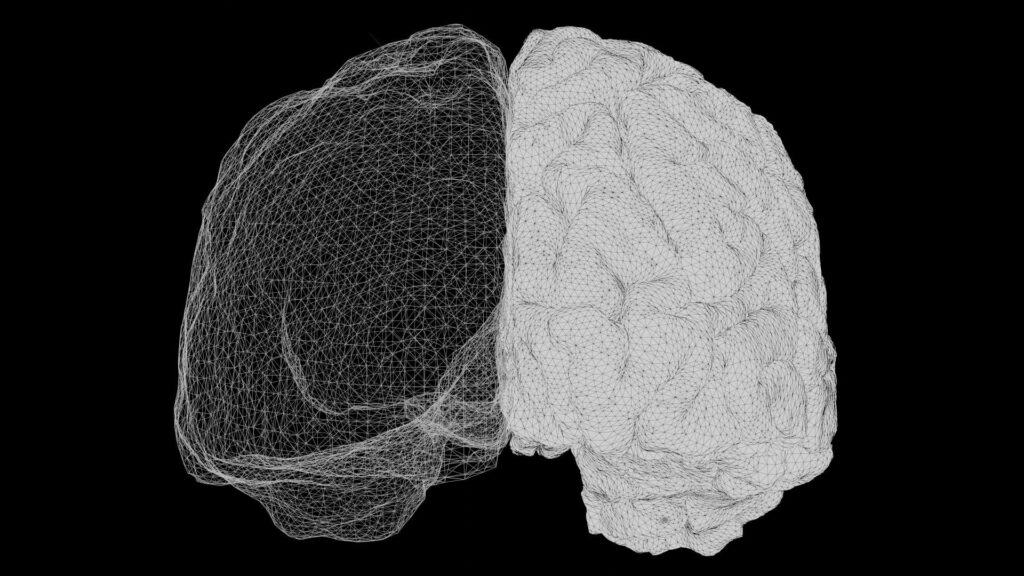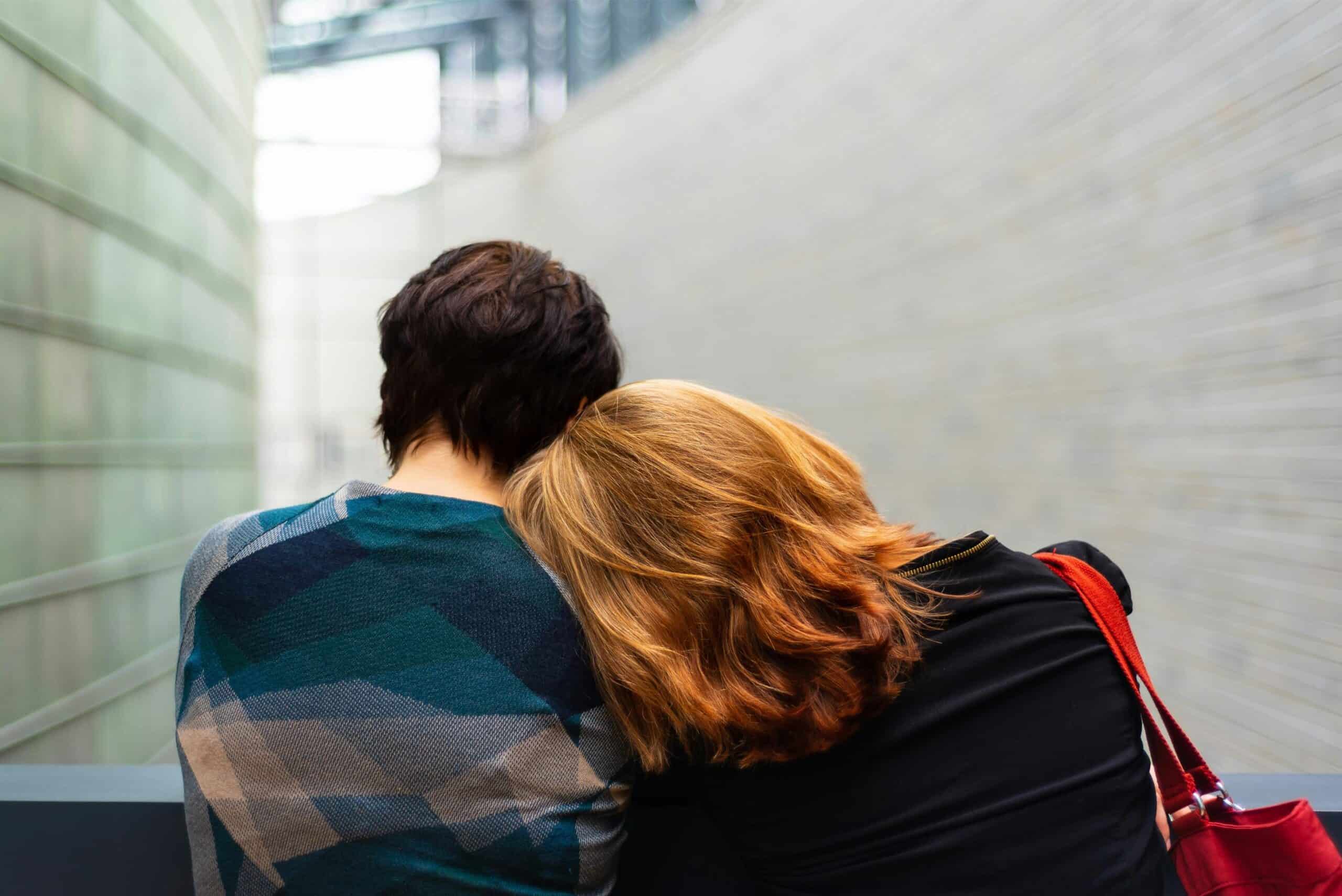Whether you’re experiencing anxiety yourself or aiding a loved one through their journey, you understand the profound impact it can have on life. Anxiety isn’t just about feeling nervous before a big event; it can manifest in a myriad of ways, from persistent worry to overwhelming fear that interferes with a person’s daily functioning.
In this comprehensive guide, we delve into practical tips to help someone with anxiety, the intricacies of the disorder: its causes, its various forms, and the range of treatments available.
From generalised anxiety disorder to panic disorder, social anxiety to specific phobias, each type of anxiety presents unique challenges and considerations. By understanding these nuances, you and your loved one can better navigate the path toward relief and recovery.
No matter if you’re seeking solutions for yourself or aiming to assist someone you care about, this expert-led article offers clarity, education, and actionable strategies for managing anxiety’s grip.
How to reduce anxiety immediately
If you’re in a state of distress and need to relieve your anxiety immediately, we recommend you take a few moments before you read further.
Get into a comfortable position and relax into one of these calming guided meditations or breathwork sessions. They will help to lower your heart rate and regulate your autonomic nervous system quickly so you can feel ready to engage with and learn from everything else we offer in this article.
You can also bookmark this page to return to these resources whenever you need them:
Guided Anxiety Reduction Meditation – 5 mins, YouTube
Somatic Breathwork Exercise – 5 mins, YouTube
Nervous System Reset – 22 mins, YouTube
We know when you’re experiencing challenges with mental health, it can feel incredibly isolating. It’s vital to know you are not alone – there is plenty of help and support available.
Finding your way here is a positive starting point. As you read through the information below, you’ll find further connections to resources that can support your circumstances.

WHAT WE’LL COVER IN THIS ARTICLE
- The most common questions people ask about anxiety.
- What does anxiety feel like?
- How can I calm a panic attack?
- How do beta-blockers for anxiety work?
- How to help someone with anxiety.
- Anxiety vs. stress: what’s the difference?
- What is the difference between anxiety and depression?
- Is anxiety a disability?
- Can alcohol cause anxiety?
- What causes anxiety in the brain?
- Can a GP diagnose anxiety?
The most common questions people ask about anxiety
Understanding anxiety can feel overwhelming because it varies so much from person to person. But trust us, there’s no such thing as a ‘dumb question’ when it comes to learning about anxiety, whether it’s for yourself or someone else.
It’s crucial to keep seeking information and asking questions. The more you know, the more you can find the right support, treatments and guidance that work for you.
Below, you’ll find the most common questions our therapy team at Palladium Private gets asked about, especially relating to the different types of anxiety and their treatments:
- What does anxiety feel like?
- Can anxiety cause chest pain?
- Do I have social anxiety?
- How to stop an anxiety attack
- Can anxiety cause high blood pressure?
- Does magnesium help with anxiety?
- Is anxiety neurodivergent?
- Can anxiety cause vertigo?
- Can severe anxiety cause nausea?
- Does caffeine cause anxiety?
- Can ADHD cause anxiety?
- Can anxiety cause anger outbursts?
- Can anxiety cause heart palpitations?
- Can anxiety cause hypertension?
- Can a breakup cause anxiety?
- Can drinking alcohol cause anxiety?
- Can an iron deficiency cause anxiety?
- Can lack of sleep cause anxiety?
You will be relieved to learn that the answer to most of these is a simple ‘yes’. To help you learn more we’re diving deep into the ins and outs of these questions as we progress through the topics ahead.
You might find it helpful to have a notebook and pen handy to jot down any information you want to revisit or follow up on. These notes can also help you if you reach out to our team to discuss your situation.

What does anxiety feel like?
It’s important to know that anxiety is a natural experience for all of us. We lead busy lives, and from time to time, stressful situations can arise and cause us to feel different levels of anxiety. For many, these experiences are short-term and often resolve as we work through whatever has caused us to feel stressed.
But for others, it’s not so simple. Because anxiety is so common, many people wonder if what they’re experiencing falls within the realm of ‘normal’ anxiety or whether they’re experiencing something more. ‘What does anxiety feel like?’ is a really common question we get asked, and the experience can be challenging to put into words because it is so different for everyone.
Let’s explore the emotional, physical, and cognitive symptoms that often accompany anxiety to help provide us with a clearer understanding:
Emotional Symptoms:
- Overwhelming worry or fear.
- Restlessness or irritability.
- Feeling tense or on edge.
- Difficulty concentrating.
- Anticipating the worst.
- Feeling like your mind is racing.
- Sense of impending doom or danger.
Physical Symptoms:
- Rapid heartbeat or palpitations.
- Shortness of breath or feeling like you can’t breathe.
- Sweating or trembling.
- Heart palpitations and hypertension (high blood pressure).
- Dizziness or lightheadedness.
- Upset stomach or nausea.
- Muscle tension or aches.
- Fatigue or trouble sleeping.
Cognitive Symptoms:
- Racing thoughts or constant worrying.
- Difficulty controlling anxious thoughts.
- Trouble focusing or concentrating on tasks.
- Irrational fears or worries.
- Catastrophising or imagining the worst-case scenarios.
- Heightened sensitivity to perceived threats.
- Negative self-talk or self-doubt.
As we’ve touched on, experiencing some of these symptoms occasionally is normal, but when they become persistent and interfere with daily life, it may be a sign of an anxiety disorder.
If you recognise these symptoms in yourself or someone else, you might find it valuable to complete our ‘Do I have Anxiety’ quiz. While this isn’t a medical diagnostic, it can help you further clarify whether the anxiety you’re experiencing requires further support.
Remember, you’re not alone, and help is available. Reaching out to a healthcare professional or therapist can provide support and guidance on managing anxiety effectively.

How to calm an anxiety attack
Anxiety attacks, also known as panic attacks, can be overwhelming experiences with intense symptoms. It’s actually quite common for people experiencing an anxiety attack to mistake it for a heart attack because the physical symptoms can feel so similar.
Both anxiety attacks and heart attacks can cause chest pain, rapid heartbeat, and shortness of breath. This similarity can be frightening and may lead someone experiencing an anxiety attack to believe they are having a heart attack.
Anxiety attacks often come on suddenly and are characterised by intense feelings of fear or panic. They can happen unexpectedly or be triggered by specific situations or thoughts.
Symptoms typically peak within minutes and, as well as the physical sensations mentioned above can cause significant emotional distress and a sense of impending doom. Additional symptoms can include:
- Rapid heartbeat or palpitations
- Chest pain or discomfort
- Shortness of breath or hyperventilation
- Sweating or trembling
- Feeling dizzy or lightheaded
- Nausea or stomach distress
- Fear of losing control or going crazy
- Fear of dying
- Numbness or tingling sensations
- Chills or hot flashes
When faced with an anxiety attack, it’s essential to have coping strategies in place to help manage the symptoms and find a sense of calm. By prepping a few strategies when you’re in a more relaxed frame of mind, you can help set yourself up for success in managing an anxiety attack when and if it happens.
Here are some techniques you can try:
- Deep breathing exercises: Practice slow, deep breathing to help calm your nervous system and reduce feelings of anxiety. Try breathing slowly through your nose for around 3-5 seconds, then exhale through your mouth for 3-5 seconds. Aim for five deep breaths.
- Grounding techniques: Focus on your senses by noticing objects around you, feeling textures, or listening to sounds to bring yourself back to the present moment.
- Progressive muscle relaxation: Tense and then relax each muscle group in your body, starting from your toes and working your way up to your head.
- Visualisation: Imagine yourself in a peaceful, calming environment, such as a beach or forest, and focus on the sights, sounds, and sensations.
- Guided meditation for anxiety: Listen to guided meditation recordings or apps specifically designed to help calm anxiety and promote relaxation.
- Meditation for anxiety: Practice mindfulness meditation to cultivate awareness of your thoughts and feelings without judgment, which can help reduce anxiety over time.
Finding the right coping strategies may take time and experimentation. What works for one person may not work for another, so be patient with yourself and keep exploring until you find what helps you best.

Beta blockers for anxiety - Do they work?
Beta-blockers are a medication primarily used to treat conditions such as high blood pressure, heart rhythm disorders, and heart failure. However, in recent years, they have sometimes been prescribed for the management of certain symptoms of anxiety, particularly those associated with performance anxiety or situational anxiety.
Beta-blockers work by blocking the effects of adrenaline on the body, specifically by inhibiting the action of beta-adrenergic receptors. Beta-adrenergic receptors are proteins on cells that respond to stress hormones, affecting heart rate, breathing, and blood vessel activity. Some people who take beta blockers for anxiety experience a significant reduction in physical symptoms, such as:
- Rapid heartbeat
- Trembling & shakiness
- Sweating
- Dizziness
While beta-blockers can be effective in managing specific physical symptoms of anxiety, they do not directly address the underlying psychological causes of anxiety. For this reason, they are most effective for supporting short-term anxiety, such as in response to a big event or stressful experience, rather than longer-term, chronic anxiety conditions.
They are not typically recommended as a first-line treatment for generalised anxiety disorder or other anxiety disorders where cognitive and emotional symptoms are more prominent.
It’s essential to discuss the potential risks and benefits with a healthcare professional before starting any medical treatments. As with any medication, you need to be aware of side effects and possible interactions with other medicines before taking beta blockers.
At Palladium Private, we have found that a tailored treatment plan of therapy, lifestyle changes, and other medications may be more appropriate or effective for managing anxiety in some cases.

How to help someone with anxiety
It’s natural to feel overwhelmed when someone we care about is struggling with anxiety. Many of the family members we work with tell us they worry about doing or saying the wrong thing or that how they respond could end up making their loved one’s anxiety worse.
These are normal thoughts, showing how much you care and deeply want to help your loved one. By seeking professional guidance and support, you’ve already demonstrated that you’re taking positive steps forward.
There are many simple yet powerful ways to help someone experiencing anxiety. Below, we’ve included a few you can explore:
- Understand the signs and symptoms: Anxiety manifests differently for each person. Take the time to learn about your loved one’s specific experiences. Ask them about their warning signs and triggers, from physical sensations like clamminess or nausea to feeling out of body. Awareness of these cues helps you provide timely support.
- Educate yourself on coping strategies: Explore various strategies for managing anxiety symptoms. Simple techniques, like guided breathing exercises or a body scan, can make a big difference. Mindfulness practices, such as taking a short walk or expressing gratitude, can help ground them in the present moment and alleviate anxious feelings.
- Connect with support resources: Know you’re not alone in supporting your loved one. Helplines like Lifeline offer round-the-clock advice and support, while organisations like Beyond Blue provide comprehensive lists of support contacts. If you’re concerned about their safety, don’t hesitate to reach out to emergency services.
- Help them seek professional support: Encourage your loved one to seek professional help, such as therapy or treatment programs, where they can receive tailored support from qualified professionals. Psychologists and therapists are equipped with the tools and strategies to assist individuals in managing their anxiety effectively.
- Offer Practical Assistance: Extend your support beyond emotional help by offering practical assistance. Just as we would help someone with the flu, small gestures like preparing a meal, doing their laundry, or taking care of errands can make a world of difference. These acts of kindness provide tangible support, especially when anxiety symptoms make it challenging to engage in daily activities.
Remember, your support and understanding can make a significant impact on your loved one’s journey toward managing anxiety. By being there for them and offering a helping hand, you show them they’re not alone in their struggle.

Anxiety vs Stress - What is the difference?
Anxiety and stress are often used interchangeably, but they are distinct experiences with different causes and effects.
- Stress is a natural response to a challenging or threatening situation. It’s your body’s way of mobilising resources to deal with a perceived threat or demand. Stress can be temporary and is usually tied to specific events or situations. While some stress levels are normal and can even be beneficial in motivating us to take action, prolonged or excessive stress can negatively affect physical and mental health.
- Anxiety, on the other hand, is a persistent feeling of worry, fear, or unease, often without a specific trigger or cause. Unlike stress, which is typically tied to a particular event, anxiety can persist even when there is no immediate threat.
Anxiety disorders involve excessive and irrational worry that interferes with daily life and functioning. While stress is usually a response to external factors, anxiety often involves internal, subjective experiences and can be more chronic in nature.
Distinguishing between anxiety and stress can be challenging since they share some similarities, but key differences exist:
1. Response to a Specific Trigger:
- Stress: Typically arises in response to specific external pressures or demands, such as deadlines, exams, or relationship issues.
- Anxiety: This may occur without a clear trigger or in anticipation of future events, and the intensity of anxiety may not necessarily match the threat level.
2. Duration and Persistence:
- Stress: Often temporary and resolves once the stressful situation is alleviated or managed.
- Anxiety: Can be more persistent and chronic, persisting even when stressors are absent or after the stressful event has passed.
3. Physical Symptoms:
- Stress: Physical symptoms may include tension headaches, muscle aches, stomach upset, or fatigue, often related to the body’s immediate response to stressors.
- Anxiety: Physical symptoms may overlap with stress but can also include more intense and persistent sensations such as rapid heartbeat, shortness of breath, sweating, trembling, or dizziness.
4. Emotional Symptoms:
- Stress: Emotions may include irritability, frustration, or feeling overwhelmed due to specific stressors.
- Anxiety: Involves persistent feelings of worry, fear, apprehension, or unease, often without a clear cause or resolution.
5. Impact on Functioning:
- Stress: While stress can interfere with daily functioning and productivity, it is often tied to specific tasks or situations and may not significantly impair overall functioning.
- Anxiety: Can significantly interfere with daily life, relationships, work, and social activities, leading to avoidance behaviours or difficulty concentrating.
6. Cognitive Patterns:
- Stress: Involves thoughts related to managing or overcoming specific stressors, such as problem-solving or planning.
- Anxiety: Involves persistent and intrusive thoughts, often focused on perceived threats, worst-case scenarios, or feelings of impending doom.
While stress and anxiety share common features, understanding these distinctions can help you better identify and address your experiences.
If you’re unsure whether you’re dealing with stress or anxiety, consulting with a healthcare professional can provide clarity and guidance on managing your symptoms effectively.

What is the difference between anxiety and depression?
Similar to anxiety and stress, anxiety and depression are sometimes used interchangeably. And, again, like stress, there are some symptom similarities between the two – but they are two distinct challenges.
Depression is characterised by persistent feelings of sadness, hopelessness, and lack of interest or pleasure in activities once enjoyed. Physical symptoms may include changes in appetite or sleep patterns, fatigue, and slowed thinking or movement. Depression can impact all aspects of life, affecting mood, cognition, and behaviour.
Below, we take a closer look at some of the key distinctions between depression and anxiety. Understanding these distinctions can help you recognise and seek appropriate support for your experiences:
1. Response to a Specific Trigger:
- Depression: Often linked to specific life events, such as loss, trauma, or significant changes.
- Anxiety: Can occur without a clear trigger or in anticipation of future events, with intensity not always matching the level of threat.
2. Duration and Persistence:
- Depression: Tends to be more persistent, lasting weeks, months, or even years, and may not lift even when circumstances improve.
- Anxiety: Can be chronic and ongoing, persisting even when stressors are absent or after the stressful event has passed.
3. Physical Symptoms:
- Depression: Physical symptoms may include changes in appetite or weight, sleep disturbances, fatigue, and bodily aches and pains.
- Anxiety: Physical symptoms often include rapid heartbeat, shortness of breath, sweating, trembling, or dizziness, alongside tension headaches or muscle aches.
4. Emotional Symptoms:
- Depression: Characterised by feelings of sadness, emptiness, hopelessness, and a lack of interest or pleasure in activities once enjoyed.
- Anxiety: Marked by persistent feelings of worry, fear, apprehension, or unease, often without a clear cause or resolution.
5. Impact on Functioning:
- Depression: Can significantly impair daily functioning, affecting relationships, work, and social activities, leading to withdrawal and difficulties in concentrating or making decisions.
- Anxiety: Also significantly interferes with daily life, often leading to avoidance behaviours, disruptions in work or school performance, and difficulty focusing.
6. Cognitive Patterns:
- Depression: Involves negative thoughts about oneself, the world, and the future, often leading to feelings of worthlessness or guilt.
- Anxiety: Characterised by persistent and intrusive thoughts, often focused on perceived threats, worst-case scenarios, or impending doom.
If you haven’t already, you might find value in completing our ‘Do I Have Anxiety’ short survey and our ‘Do I Have Depression’ short survey.
While these surveys are not medical diagnostics, they can provide insights and clarity on your symptoms and experiences. This information can help you further decide your next steps and the level of support you need.

Is anxiety a disability?
According to the Australian Institute of Health and Welfare, one in five Australians aged between 16 and 85 have experienced a mental health disorder. This is significant and can help illustrate just how prevalent and impactful mental health challenges can be.
Anxiety can be considered a disability under certain circumstances. In Australia, anxiety disorders may qualify as a disability if they significantly impact a person’s ability to perform everyday tasks or participate fully in work, education, or social activities.
The severity and persistence of symptoms, as well as their impact on functioning, are key factors in determining whether anxiety qualifies as a disability.
It’s essential to seek professional advice and support to understand how anxiety may affect your ability to access accommodations or support services in Australia. The National Disability Insurance Scheme (NDIS) can help provide you with further information and guidance, including assessments and entitlements.

Is anxiety genetic?
Anxiety can have a genetic component, meaning that it can run in families. While genetics alone do not determine whether someone will develop anxiety, they can increase the likelihood of it occurring.
Research suggests that certain genetic variations may contribute to an individual’s susceptibility to anxiety disorders. A review of studies on generalised anxiety disorder found that the condition is heritable – meaning you can inherit from one of your parents – with a genetic risk of 30%. This genetic risk implies that around 30% of the condition’s causes can be traced back to genetic factors.
However, genetics are just one piece of the puzzle, and environmental factors and life experiences also play significant roles in the development of anxiety. As we’ve touched on, there are many influences behind anxiety and how we might experience it within our lives.
While someone may have a genetic predisposition to anxiety, it doesn’t mean they will experience it, and vice versa. Knowing that genetics can play a role, though, can help grow your understanding of anxiety and support management and treatment plans.

Can alcohol cause anxiety?
The relationship between anxiety and alcohol can be complex, with some individuals finding it challenging to determine which issue arose first. At Palladium Private, we often encounter two common scenarios:
- Anxiety leading to alcohol use: Individuals experiencing anxiety or depression may turn to alcohol as a means of coping with social situations or daily stressors. Alcohol can initially provide relief, but over time, it may exacerbate feelings of anxiety or trigger panic attacks.
- Alcohol use intensifies anxiety: On the other hand, individuals may use alcohol to numb the effects of trauma or soothe social nerves, only to find themselves experiencing heightened anxiety when the alcohol wears off. This cycle can lead to a worsening of both alcohol dependence and anxiety symptoms.
Understanding the science behind alcohol’s effects sheds light on this dynamic. Alcohol acts as a depressant, initially producing feelings of relaxation and euphoria due to increased dopamine levels. However, as the body metabolises alcohol, it releases stimulants to counteract its depressant effects. This can lead to a “hangover anxiety” the next day, perpetuating the cycle of alcohol use and anxiety.
Therapeutic approaches such as Acceptance and Commitment Therapy (ACT), Cognitive Behavioral Therapy (CBT), and Mindfulness Training have shown effectiveness in treating both anxiety and alcohol misuse by addressing underlying triggers and developing coping strategies.
Whether anxiety leads to alcohol use or vice versa, addressing both issues simultaneously is key to achieving lasting recovery and emotional well-being. You can check out our helpful HealthShare Fact Sheet on this crucial topic to learn more.
If you or someone you know is struggling with anxiety or alcohol misuse, reaching out for professional support can be the first step toward healing and reclaiming a fulfilling life.
What causes anxiety in the brain?
As you’re likely getting an understanding of by now, anxiety isn’t a simple condition. It’s influenced by biology, genetics, environment, and individual psychology.
While the exact causes remain a bit mysterious, we do know that certain chemicals in the brain, called neurotransmitters, play a big part in how anxiety develops and shows up.
These neurotransmitters act as messengers in the brain, helping to regulate mood and emotions. Here’s a quick overview of a few important ones and their role in anxiety:
- Serotonin: Most people have heard of serotonin – a neurotransmitter that helps regulate mood, emotions, and anxiety. Low serotonin levels have been associated with anxiety disorders, as it plays a role in mood stabilisation and feelings of well-being.
- Gamma-aminobutyric acid (GABA): GABA is an inhibitory neurotransmitter that helps reduce neural activity. It helps calm and relax the brain, reducing anxiety. Low levels of GABA or impaired GABA functioning may contribute to increased anxiety.
- Norepinephrine: Norepinephrine is involved in the body’s stress response and regulates attention and alertness. Imbalances or dysregulation of norepinephrine can contribute to anxiety symptoms.
- Cortisol: Cortisol is a hormone released by the body in response to stress. Prolonged elevated cortisol levels can contribute to anxiety and impact the body’s stress response.
The relationship between these neurotransmitters and anxiety is complex, and scientific researchers are still trying to understand the full relationship.
The role and impact of neurotransmitters also vary between individuals – another reason why it’s so vital to seek professional guidance before taking medications for anxiety, which often act on different neurotransmitters in the brain.

Can a GP diagnose anxiety?
Yes, your General Practitioner (GP) can diagnose anxiety. GPs are trained to recognise the signs and symptoms of anxiety disorders and are often the first point of contact for many individuals seeking help for mental health concerns.
During a consultation, a GP will typically conduct a thorough assessment, including discussing symptoms, medical history, and any potential triggers or stressors. They may also use standardised questionnaires or screening tools to aid in the diagnosis.
If your GP suspects an anxiety disorder, they may provide a diagnosis based on the criteria outlined in the Diagnostic and Statistical Manual of Mental Disorders (DSM-5) or the International Classification of Diseases (ICD-10).
They may also recommend further evaluation by a mental health specialist, such as a psychologist or psychiatrist, for a comprehensive assessment and to develop an appropriate treatment plan.
Conclusion
If you’re navigating anxiety or supporting a loved one through it, remember that you’ve already taken a significant step towards healing simply by seeking information and understanding. By reading this article and engaging with the resources contained within it, you’ve started the positive journey to recovery.
While anxiety can feel overwhelming and daunting, it’s essential to recognise that it is manageable with the right support and resources. By gaining insights into the differences between anxiety and depression, anxiety and dress, and its causes, you’ve embarked on a journey towards greater awareness and empowerment. There is hope for a brighter future, where anxiety no longer holds you back from leading a fulfilling and balanced life.
With determination, courage, and the support of others, you can overcome anxiety and thrive.
For more information on Palladium Private’s holistic BioPsychoSocial program or funding options, please feel free to call and speak to one of our Admissions Team consultants, who can answer any questions you may have.
Disclaimer: The information provided in this blog is for general informational purposes only and is not intended as a substitute for professional medical advice, diagnosis, or treatment.



